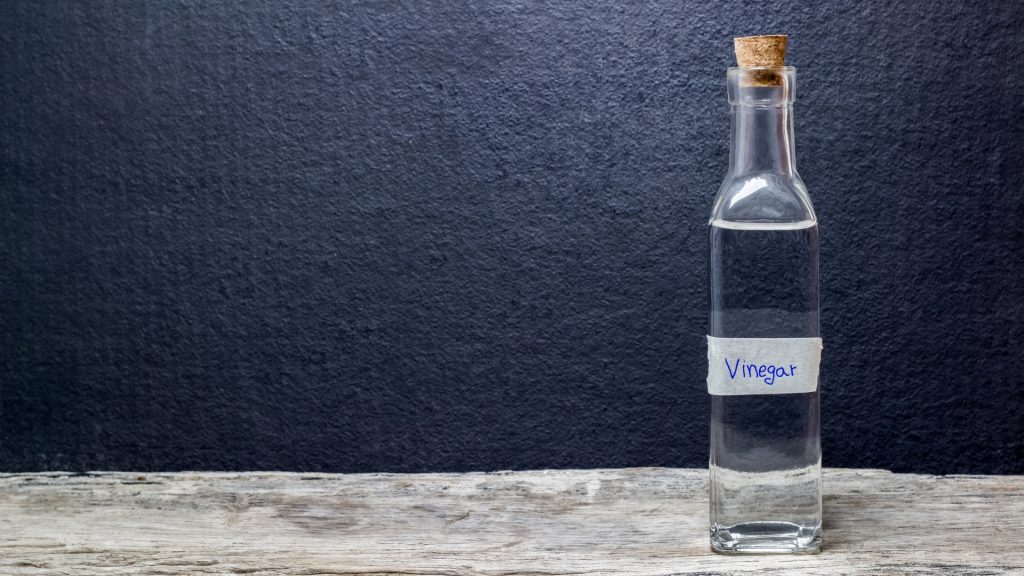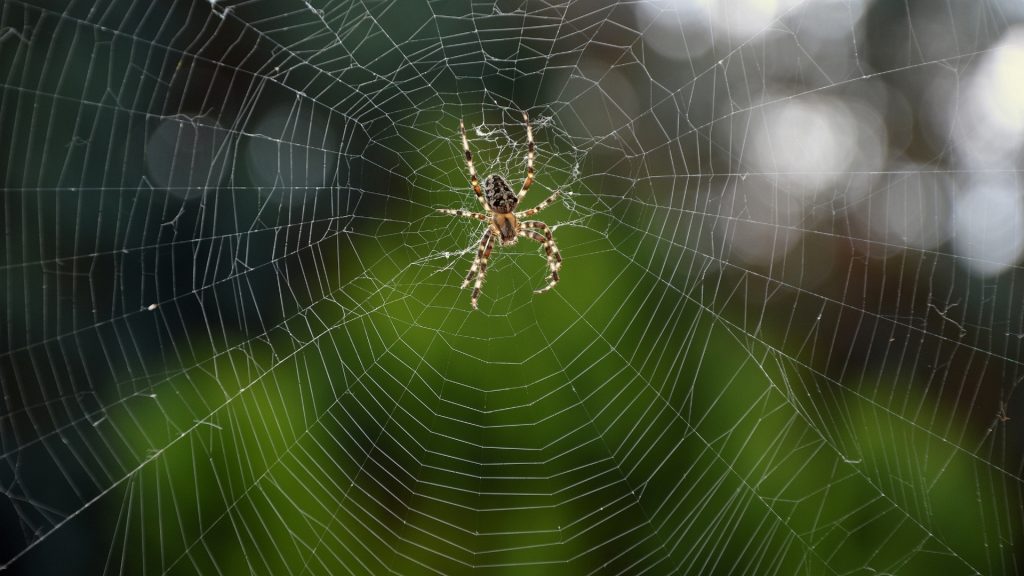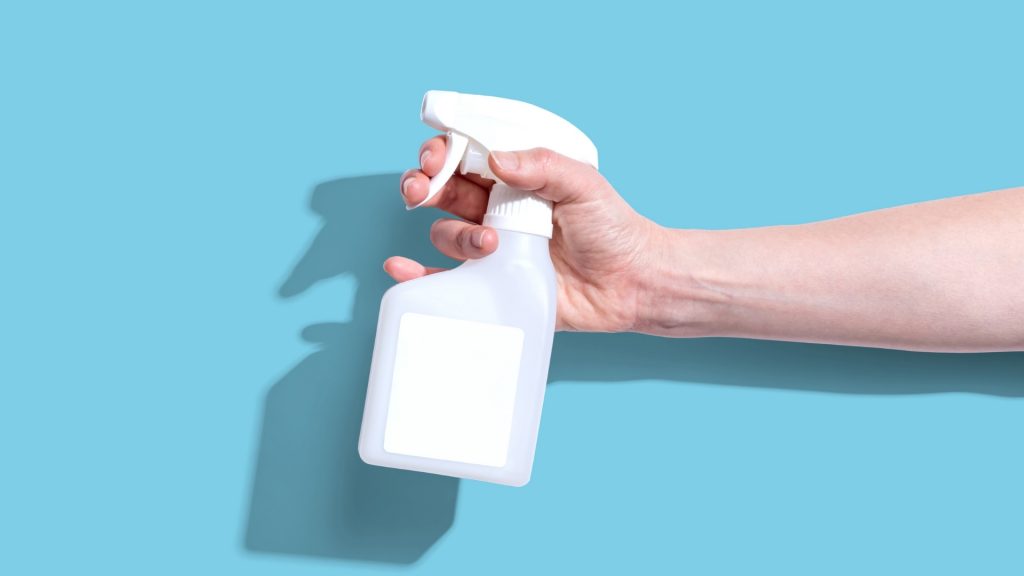Although beneficial to some extent (feeding on bugs), spiders can also prove problematic, especially when they invite themselves inside your home. Luckily, there are many natural ways to deter spiders, with the most common option being the use of vinegar. But to get the job done using vinegar, you must know the right steps to observe.
How to use vinegar to get rid of spiders? To use vinegar to get rid of spiders, mix white vinegar and water (in equal parts) and place the solution in a spray bottle. Spray the common breeding areas where you normally spot webs. You can also place the solution in cotton balls or containers and place them close to webs.
If you’re looking for natural ways to get rid of spiders, then you’ll find this article useful. Read on for an in-depth discussion on how to use vinegar to keep spiders off your property.
Is Vinegar a Good Spider Repellent?

Vinegar is a good spider repellent because, unlike substances like bleach, it isn’t toxic when inhaled or touched by humans or animals, making it safe for frequent usage in household environments. It’s also effective since it contains acetic acid, which is harmful to spiders.
Spiders don’t like the smell of vinegar or anything to do with acetic acid, meaning the solution should be effective enough to solve your spider issue.
How Does Spider React to Vinegar?

Contrary to popular belief, vinegar isn’t sufficient enough to instantly kill spiders and end your arachnid infestation. However, the amount of acetic acid in your preferred vinegar solution will determine how effective the natural remedy will be in deterring spiders.
Spiders are unlikely to consume food items laced with vinegar. However, the strong stench of acetic acid will do a great job in keeping these potentially harmful arachnids away from your property.
Once a spider detects the smell of vinegar in its immediate surroundings, chances are it’ll flee from the sprayed area. White vinegar solutions with high acetic acid content are also likely to burn and consequently harm spiders.
How To Make Spider Repellent With Vinegar?
To make spider repellent with vinegar, below are some of the steps:
Choose the Right Type of Vinegar
The type of vinegar you use plays a huge role in determining whether you eliminate spiders from your property or not. Ideally, white vinegar is the best option as it contains high amounts of acetic acid.
Therefore, when buying white vinegar, choose one that contains high amounts of acetic acid like Lucy’s Distilled White Vinegar. This is because spiders and acetic acid don’t get along too well, meaning spiders will respond to the strong smell by exiting your property.
- LUCY’S NATURAL COMPOSITION - Lucy’s White Vinegar's...
- SPICING UP DIPPING SAUCES - Lucy’s White Vinegar can add a...
- SUBSTITUTE FOR SALT OR BUTTERMILK - Lucy’s White Vinegar can be...
- ALL-PURPOSE CLEANER - Lucy’s White Vinegar is a powerful,...
- 100% FAMILY OWNED, FOUNDED AND OPERATED - Lucy’s was...
Prepare Your Ingredients
Some of the must-have ingredients when using vinegar to repel spiders are as listed below:
- White vinegar
- Water
- Cotton wool
- Bowl
- Spray bottle
Some people prefer using a bowl, while others feel a spray bottle is sufficient. However, to effectively eliminate spiders from your household, it’s advisable to make use of all the options (spray bottle, cotton wool, bowl).
Mix Vinegar With Water

Place white vinegar in a bowl or spray bottle and add an equal amount of water. You can add more water to the solution if you’re affected by the smell of vinegar. However, if you choose to dilute the solution further, try as much as possible not to overdo it as you can weaken the smell and strength of the natural repellant.
The quantity of white vinegar you use should depend on the extent of your spider infestation. Using more vinegar means you’ll have a generous amount of the repellant to work with, thus increasing the chances of eliminating the spiders successfully.
Spray the Target Areas
Once you’re done preparing the solution, it’s time to move on to the next step, which is to spray all spider-friendly areas. This means spraying directly on webs, cabinets, corners, closets, and any crevices that you suspect might be harboring the spiders.
When spraying, it’s highly advisable to spray generous quantities to ensure the stench is strong enough to deter the spiders. Some people prefer listing down the target areas and ticking them off the list once they’re effectively sprayed. Using this approach will help ensure that all the affected areas are sprayed accordingly.
Place the Solution in Bowls

Although not mandatory, placing the vinegar solution in small bowls can help repel spiders further. The trick is to fill the bowls and place them in strategic locations like corners, beneath furniture, and dark areas that might be attractive to spiders.
Allowing the bowls to sit for two to three days should be enough to force spiders off your property. If you find the smell of vinegar to be too strong, you can also add orange or lemon peelings to make the smell a bit bearable.
Alternatively, you can also soak cotton wool in the vinegar solution and place the balls in hard-to-reach areas like holes and in cracks. The cotton wool should maintain the vinegar’s smell and ensure that spiders in the difficult-to-access areas are also eliminated.
Best Homemade Spider Killer With Vinegar Recipes
Luckily, there are several methods you can use to take care of your spider problem at home. Below is a brief discussion of some of the best homemade spider killer recipes:
White Vinegar Spider Spray

As mentioned earlier, white vinegar is a great option when looking to control and keep spiders off your property. You can use undiluted white vinegar if you want an extra-strong solution. However, undiluted vinegar works best if you’re planning to spray directly on the spiders.
Coconut Oil and Vinegar
Besides vinegar, coconut oil is also another great way to get rid of spiders. The trick is to mix one cup of white vinegar with a teaspoon or even a tablespoon of coconut oil. Spiders don’t love the smell of both vinegar and coconut oil, so the mixture should be enough to keep these crawlers from your property.
- NATURALLY NOURISHING COCONUT OIL FOR HAIR - With its unique...
- HYDRATE NATURALLY WITH COCONUT OIL FOR SKIN - Coconut oil organic...
- COCONUT OIL FOR COOKING AND BAKING - An unrefined coconut oil...
- A KITCHEN AND BEAUTY STAPLE - Whether you’re using our coconut...
- QUALITY YOU CAN TRUST - Our cold pressed coconut Oil is...
Vinegar and Water Spider Killer
A vinegar and water solution is a surefire way to get rid of spiders. When using a water-vinegar solution, it’s highly advisable to choose distilled white vinegar with high acetic acid content. And if your aim is to kill spiders to control their population, then you should look to spray directly on them.
How To Use Vinegar To Kill Spiders?
To use vinegar to kill spiders, the first step should be mixing a concentrated solution of white vinegar with water. Point to note, though, the amount of acetic acid must be high as an extremely diluted water-vinegar mixture won’t be enough to kill spiders.
Some people prefer spraying white vinegar directly on spiders without mixing with water. And while this might work for some, the smell of undiluted vinegar can prove to be too much for others. Additionally, using undiluted vinegar will cost you more compared to mixing it with water before spraying directly on spiders.
However, if killing spiders is your aim, then it’s best to spray them with a concentrated solution of white vinegar.
Vinegar for Spider Bites
Besides repelling spiders, vinegar is also a great home remedy for treating non-venomous spider bites. Here’s a guide on how you can use vinegar for spider bites.
How To Use Apple Cider Vinegar for Spider Bites?

Apple cider vinegar is a proven remedy for bug bites, so it can do a great job when dealing with one or several (non-venomous) spider bites.
And while apple cider vinegar won’t heal the wound immediately, it’ll help reduce the burning and stinging sensations that result from spider bites.
To use apple cider vinegar for spider bites, you can choose to place a drop directly on the affected area to reduce the itch and disinfect the wound. Alternatively, if you need additional relief, you can soak a soft washcloth in cold or lukewarm water and add several tablespoons of apple cider vinegar.
Take the soft piece of cloth and gently place it on the affected area, taking care not to hurt yourself while wiping the wound. You should feel a bit of relief after applying the apple cider. Repeat the process two to three times a day or when feeling excessively itchy.
Do note that apple cider vinegar isn’t a recommended solution when dealing with venomous bites. Additionally, it’s highly advisable to consult with your doctor if you experience extreme symptoms after a spider bite.
Related: Can Spiders Bite Through Leggings?
Summary
Sometimes, the best way to deal with pest infestations is by using natural remedies, especially in home or work environments. This is because insecticides and toxic chemicals might lead to health concerns, especially when children and pests come into contact with the substances.
Vinegar is a great solution if you’re looking to get rid of spiders. Consider spraying a generous amount of vinegar on webs, corners, and dark places to keep spiders away. Alternatively, you can also spray vinegar directly on spiders if you want to eliminate them without using insecticides.
Related: 7 Best Outdoor Spider Sprays Review
List of Sources
Johnston, C. S., Gaas, C. A. (2006). Vinegar: Medicinal Uses and Antiglycemic Effect. Medscape general medicine.
Mayo Clinic Staff. (2021). Spider bites: First aid.
Virginia Department of Health. (2018). Acetic Acid.
Potter, M. F. (2018). Eliminating Spiders Around Homes and Buildings. College of agriculture, food and environment, University of Kentucky.
- How to Get Rid of Turtles | Proven Long-Term Solutions! - August 26, 2023
- How to Get Rid of Kingsnakes | Easy & Humane! - August 26, 2023
- How to Get Rid of Northern Water Snakes | Best Solutions and Preventative Measures! - August 19, 2023



